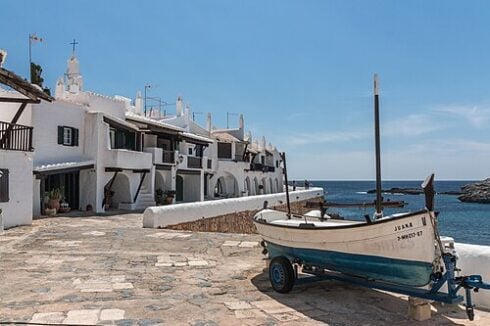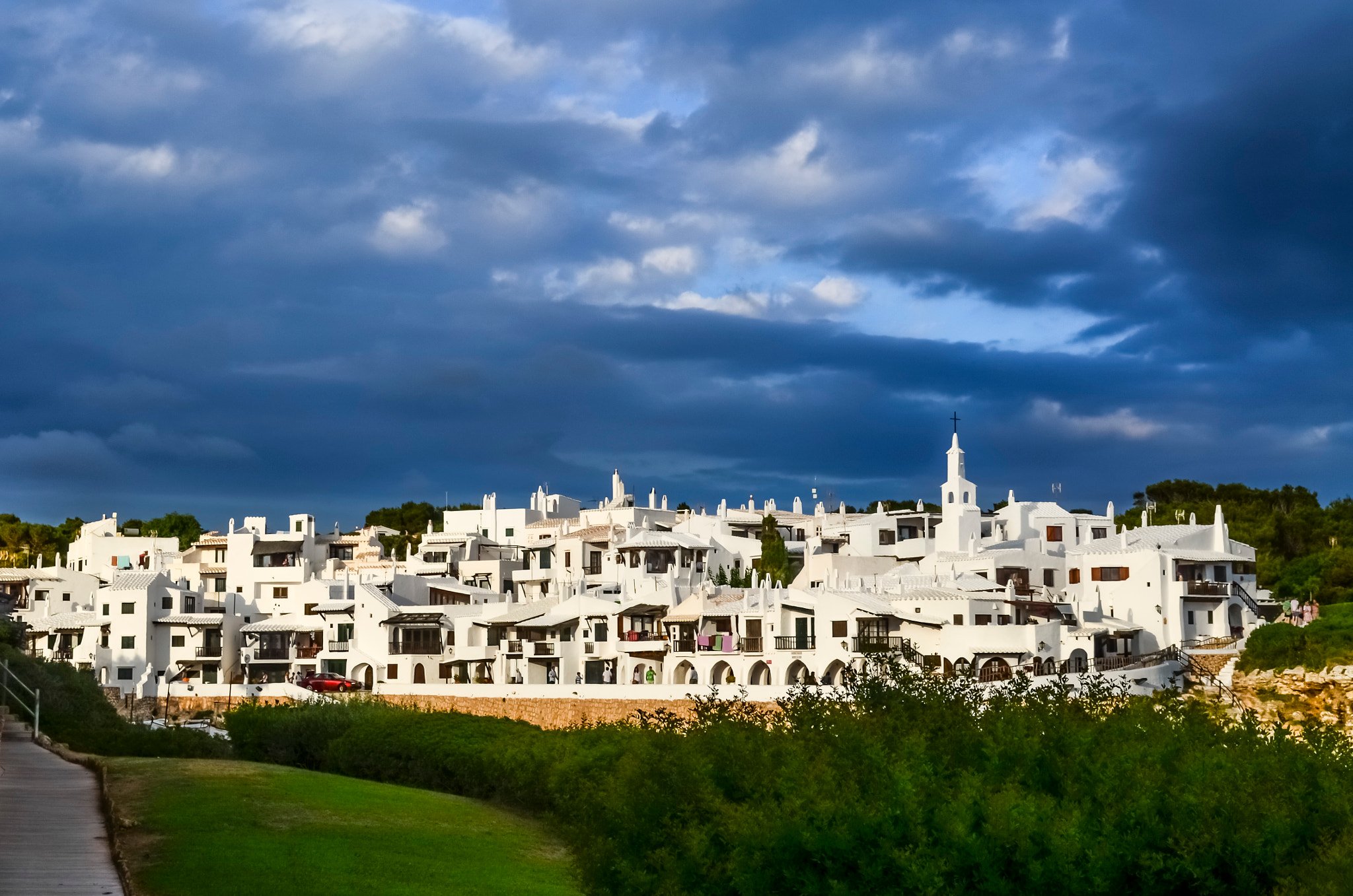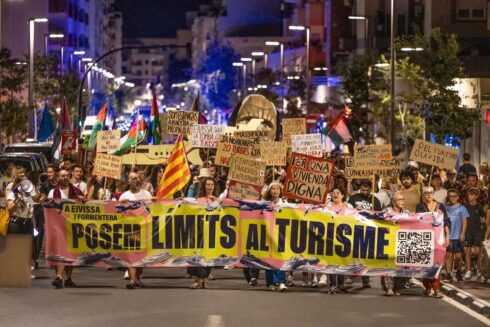A PICTURESQUE Menorca village is on the verge of taking the drastic step of banning tourists altogether after being overrun by visitors, the Telegraph reports.
Binibeca Vell, a charming hamlet known for its whitewashed houses and narrow alleyways, has become a magnet for tourists seeking the perfect Instagram shot.
It attracts around 800,000 visitors annually, drawn by its resemblance to a Greek village with a touch of Cappadocia’s charm.
The village was built in the 1960s as a private estate rather than an ancient fishermen’s settlement.

However, the influx of visitors has reached a breaking point for residents, who are struggling to cope with the constant crowds.
“There’ll be a person posing for a photo. And as soon as they’re done, another one steps forward,” said one local resident describing the daily ordeal.
The village has already implemented measures to control the tourist influx, including restricted visiting hours and strict rules of conduct.
But for many residents, these steps are not enough. A vote will be held on Friday to decide whether to completely close the village to tourists.
Others fear that a ban would strangle the town’s economy, which depends almost entirely on selling items and services to tourists.
The crisis in Binibeca Vell is a microcosm of the broader overtourism problem facing Menorca.
The island, once a tranquil escape, is now grappling with the consequences of mass tourism, including overcrowding, environmental damage, and rising living costs.
While tourism is essential to the local economy, the industry’s unchecked growth is putting immense pressure on residents and the island’s natural resources.
Many locals are calling for a more sustainable approach to tourism, with a focus on quality over quantity.
The potential ban on tourists in Binibeca Vell has sparked a heated debate, with businesses fearing the economic impact while residents demand relief from the overwhelming crowds.
The outcome of the vote will have far-reaching consequences for the village and could set a precedent for other over-tourism hotspots.








